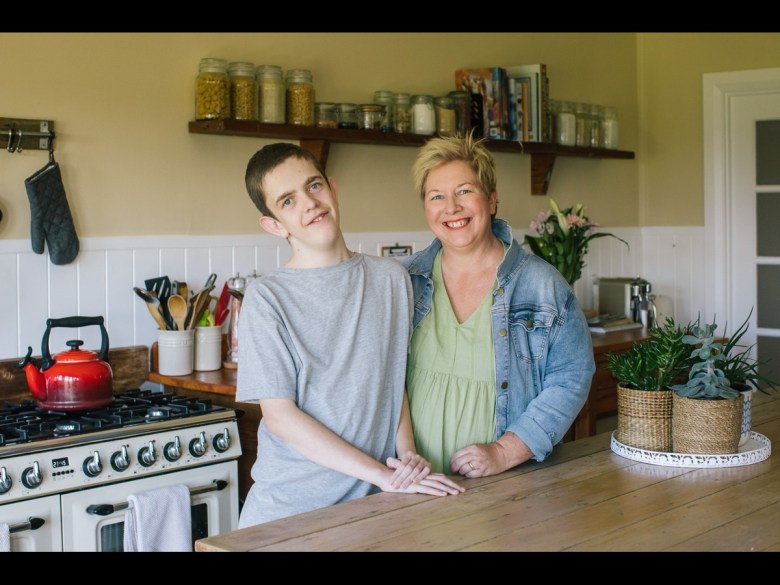The face of brands is changing thanks to the work of certified social enterprise Disinfluencer.
Disinfluencer is an Australian first: a content and branding hub that helps businesses be more inclusive and promote their own inclusivity with sensitivity and pride.
It was founded by Simone Eyles, who has a background in marketing and design. Inspired by a 2022 incident when singer Lizzo was called out for disrespectful lyrics, Eyles realised that the disability community needed better representation in the media.
“It made me realise that you don’t see any positive news stories. You don’t see the joy and the light of disability,” she said.
“I was kind of frustrated as a marketing person, that there’s no marketing to people or families with disabilities for everyday products they love.”
Eyles’s son Josh has sensory issues, and she drew from that as she considered how marketing could be done differently: putting these differences and preferences front and centre in a creative way.
She approached several brands and discovered that they too had been considering how to become more inclusive in their marketing, but didn’t know how.
As these thoughts converged in Eyles’ head, the idea of Disinfluencer came to the fore: a branding and marketing hub that would help brands be actively inclusive.
Disinfluencer provides stock photos, content and educational resources to businesses, with clients spanning government, lifestyle and corporate so far. Through content creation, images, (dis)influencers and education, it promotes inclusion in business and marketing.
As a social enterprise, Disinfluencer also provides employment opportunities for people with disability, through pathways to work in the advertising and media industries and involvement in the creation of Disinfluencer resources like stock photos. All those involved – like people with disability who take park in stock photo shoots – are paid for their time and work.
“Everything I’ve developed have been co-created. I have about 55 people on my books, talent l across Australia. And these are people inspired by my son. There are people out there with disabilities who have a dream to walk a catwalk or be in a TV commercial, or be a journalist,” Eyles said.
“I want every agency to have disabled talent on their books, not just one or two people but hundreds of people, because there are people out there that dream of doing this.”
As someone who knows marketing and business, as well as someone who knows and understands disability, Eyles acts as a facilitator between the two sides to make those dreams happen in what she calls “a complete inclusive process”.
Some of those she has worked with have gone on to star in television shows.
“If we can see more people that have disabilities and make it the norm, not the exception, that’s the kind of barrier I’m trying to break down,” Eyles said.
“There’s a lot of unnecessary stigma, and I feel like if we have that representation, we have that inclusion.”
Eyles follows the old adage of ‘you can’t be what you can’t see’ and aims to take disability representation mainstream. But it also has to be genuine, she added.
“We don’t just want to see someone in a wheelchair chucked in the ad for the sake of it. I want to see the person with disability as the hero, the centre of the creative. When that day comes, I will be the happiest person on the planet.”

